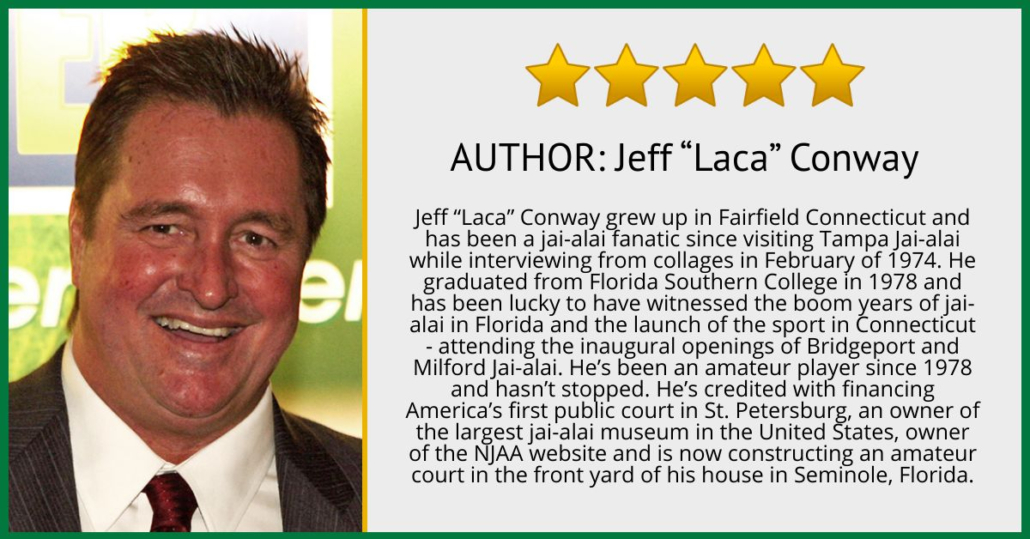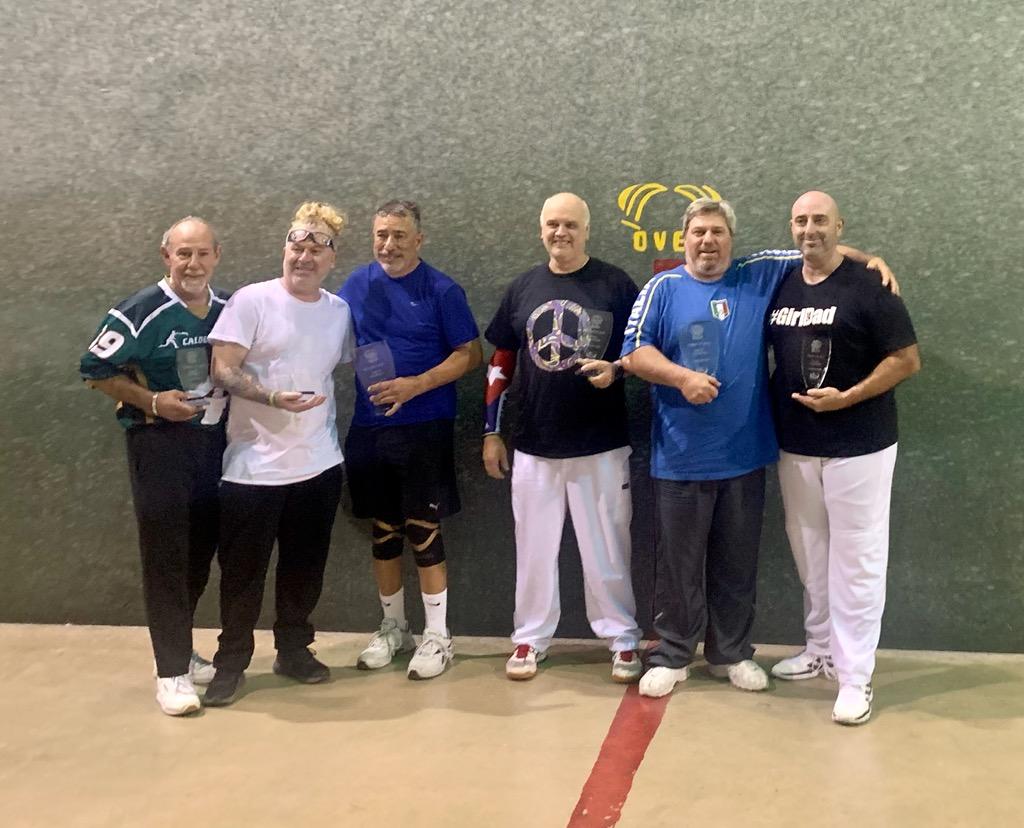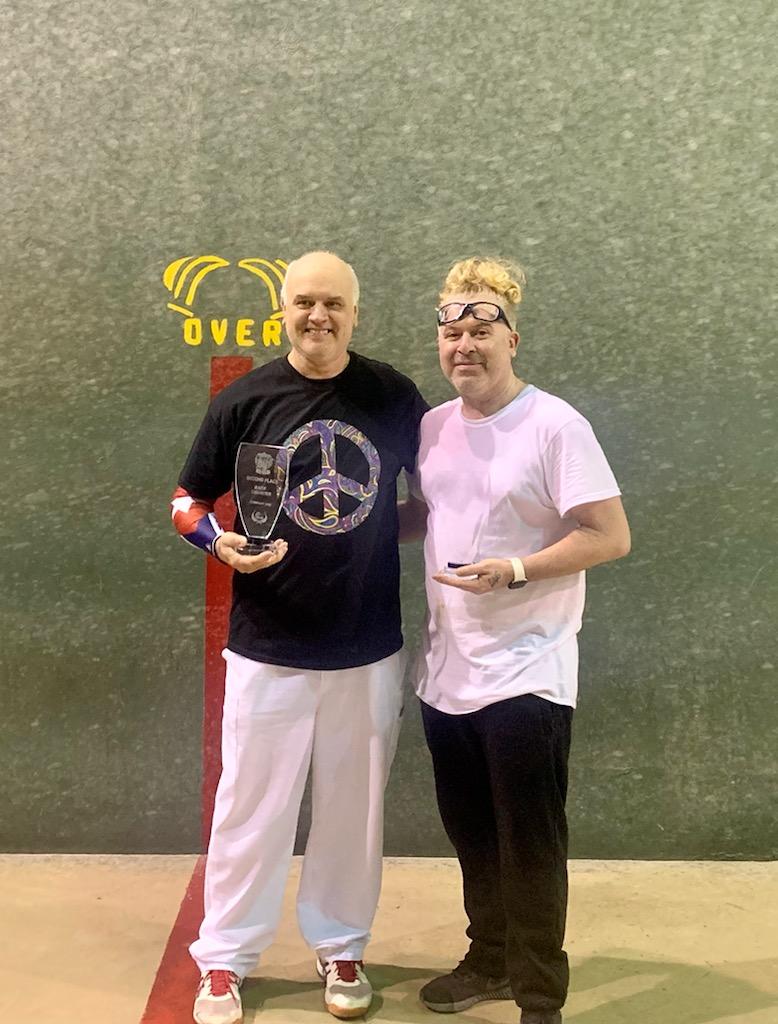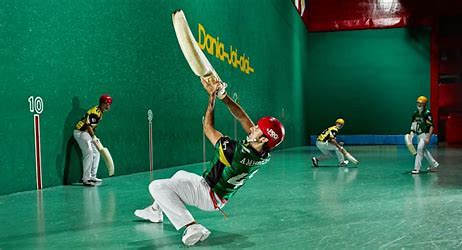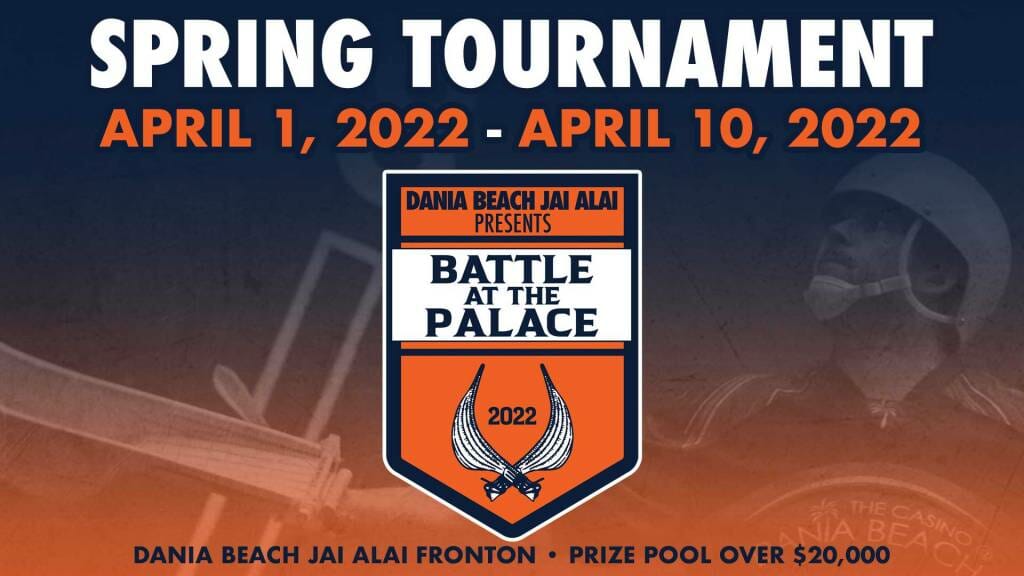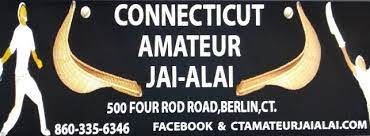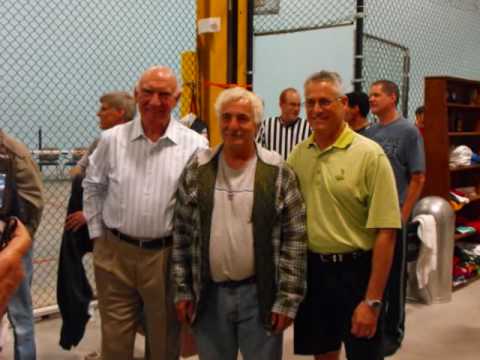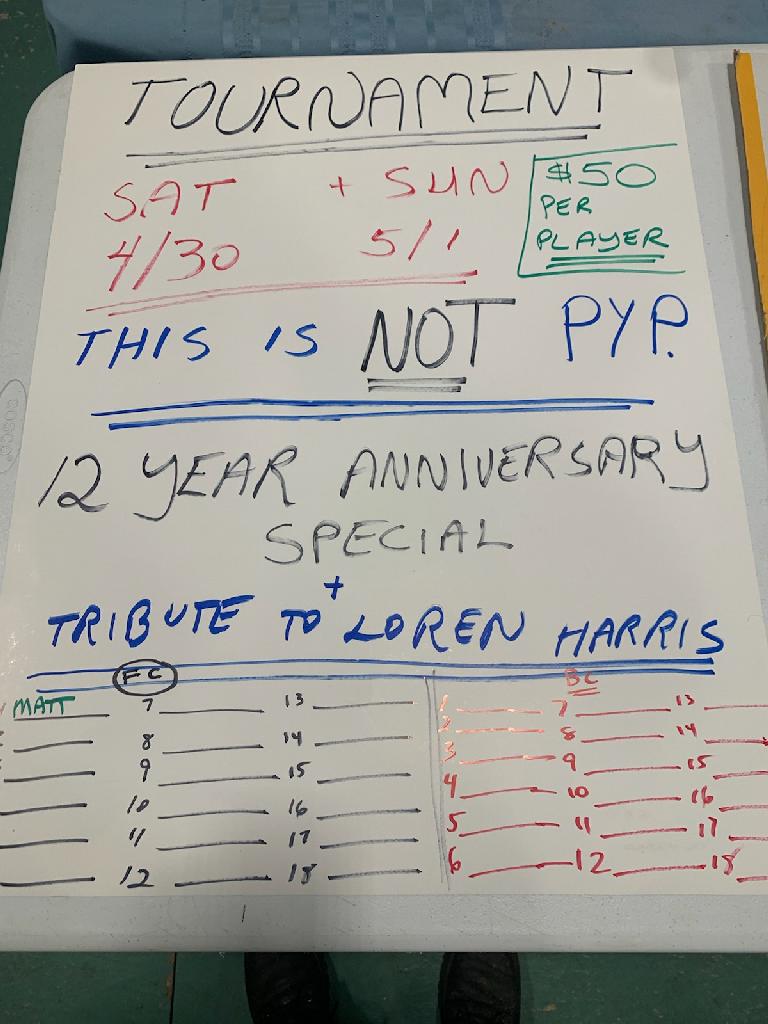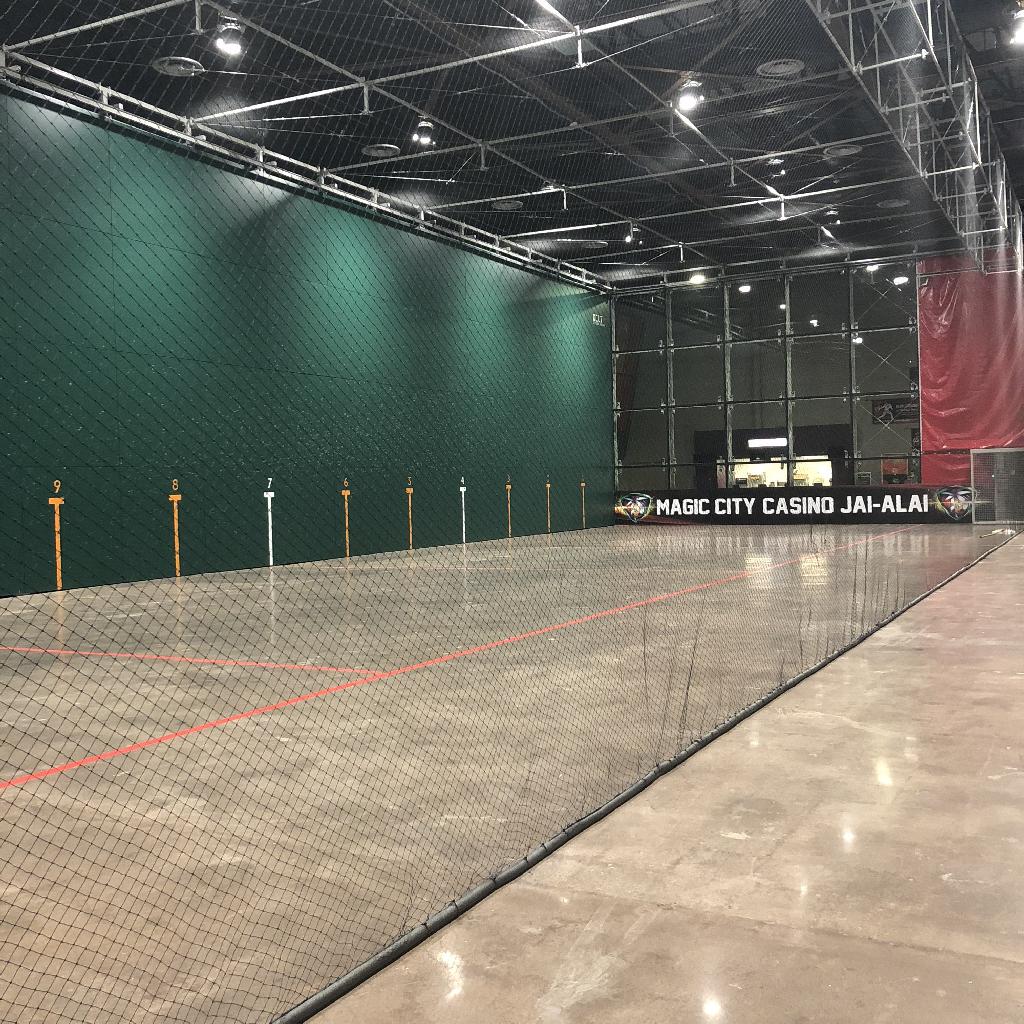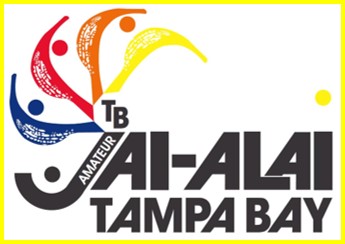Jeff “Laca” Conway Blogs:
South Florida’s Sun Sentinel contacted us again after the Benny posting on Tigers site and a story on Dania’s reopening in the Pelota Press. It’s a good story about the great news that indeed, Dania is reopening.
There will be a tournament over the first two weekends in April that will feature up and coming stars. There is a $5 admission fee per day with $25 tickets to see the entire event. There is no pari-mutual or sports wagering offered on this event.
Then in December and January, live jai-alai will resume with a 22–24-man roster and betting pari-mutual style will take place. As we have said before, the owners love jai-alai and want it to continue but not at the loses of what is likely well over a million dollars a year. By holding the season in those two months they can profit from a lot of tourists in town and avoiding any overlap with the Magic City Jai-alai season. As noted in the article below, the best two weeks of the year, handle wise, are generally the last two weeks of the year and Dania had been shut down at that time.
Also, regarding the story below, there is one correction I want to make. I did not have anything to do with the bus loads of players coming from Tampa. I wasn’t even aware – if there ever was one. I did say there were abut 40-50 people from the Tampa area on the Saturday night at Dania when asked and I said they were mostly ex-pros from Tampa.

It’s not dead: Jai alai returning to longtime Dania Beach home
By Ron Hurtibise
South Florida Sun Sentinel
Feb 19, 2022 at 6:00 AM
Reports of the death of jai alai in Dania Beach, it turns out, were premature.
Owners of The Casino at Dania Beach, which pulled the plug on the longtime parimutuel sport a year shy of its 70th birthday at the site, have decided to bring it back after all.
First, the venue will stage a seven-day round robin exhibition tournament, with no betting, over the first two weekends of April.
Then in December, the parimutuel version will return for an eight-week season running through the end of January.
The announcements this week were eagerly greeted by longtime jai alai fans, said Jeff Conway, who runs a jai alai blog called pelotapress.com.
”They are happy,” Conway said of fans on Thursday. “They’re surprised but they’re happy. They thought it was pretty much over.”
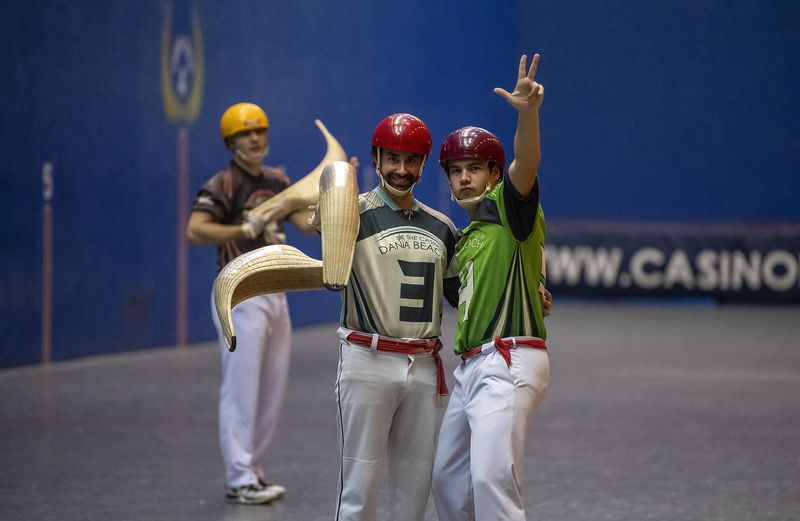
(Michael Laughlin/Sun Sentinel)
That’s how things sounded in September, when the casino’s owners announced that the sport wouldn’t be returning in spring 2022 after the fall season closed on Nov. 28. They negotiated buyouts of 26 players’ contracts that ran for the four months ending in May.
The decision left only Magic City Casino in Miami with regular jai alai operations. It also evoked feelings of sadness and nostalgia among current players, former players and fans who have watched longtime venues close up one by one across the state in recent decades.
Players and support staff at the Dania casino “went through a very emotional period at the end of 2021,” said Benny Bueno, a former player who served as the casino’s jail alai operations manager for more than a decade. ”Everyone took the decision as though it was going to be permanent.”
The backstory
They understood the reasoning, Bueno said. The popularity of jai alai, a centuries-old sport founded in the Basque regions of Spain and France and introduced to the United States in 1904, had steadily fallen since peaking between the 1950s and 1980s. In its heyday, thousands of fans regularly packed fronton grandstands, largely because jai alai frontons were among the few places that allowed legalized gambling.
Then came the Florida Lottery, casinos on cruise ships and Seminole Indian reservations, Major League Baseball, professional basketball, and finally, new laws allowing declining parimutuels to offer casino games.
But there was a catch: Those laws required parimutuels to keep their sports going — even as crowds and betting totals dwindled — as a condition of offering the more lucrative casino games.
Betting via closed-circuit television blossomed, followed by betting via online streaming video. Gamblers no longer needed to leave their homes. Dania Jai Alai Fronton became The Casino @ Dania Beach, with multiple events and attractions. As jai alai’s prominence diminished, attendance at the fronton dwindled to a few dozen each night.
Finally last spring, the Seminole tribe and the Florida Legislature negotiated an agreement allowing parimutuels in the state to “decouple” their unprofitable horse racing and jai alai attractions.
Although the Dania Beach casino’s Argentinian owners supported jai alai, the decision was a no-brainer, Conway said. “If I had to guess, I’d say they were losing $1 million a year on jai alai,” he said. Players, too, saw their incomes drop as nightly betting totals declined.
A glimmer of life
And then, amid the sadness of the season’s final weeks, as the final weekend drew closer, something inspiring happened, Bueno said.
Fans returned to say goodbye. They came by car from Florida cities that once hosted jai alai, and they came by plane from other states where the sport was once popular. Conway helped to gather former players and diehard fans from the Tampa area who arrived aboard two charter buses.
There were more people and money bet over the last two weeks than the venue had seen in years, Bueno said.
On the season’s last Saturday night on Nov. 27, the Dania Beach venue was packed — both the 500-seat grandstands and the standing areas, Conway said. “You couldn’t even walk through,” he said.
Those last crowds “demonstrated that this sport is still alive,” Bueno said. And it got him and the casino’s owners brainstorming ways to continue jai alai’s tradition in Dania Beach.
For the April exhibition tournament, a mix of the venue’s veterans and some of the sport’s rising stars from Spain and France who have never played in Dania Beach will compete to split $21,000 in prize money, he said.
The parimutuel season in December and January will be a test run to see if a scaled-down version can make financial sense, he said. If successful, the season could be extended.
Conway thinks the owners might keep it going even if they can break even. “It gives them another attraction for the casino — something most other casinos don’t have,” he said.
In recent years, the sport has taken a break for two weeks at the end of December. But historically, those two weeks have been among the biggest in terms of attendance and betting handles, Conway said. Playing during those weeks, when Floridians are on holiday break and tourists swarm to the state, could help the experiment succeed, he said.
It would also allow something that didn’t seem possible in November — a celebration of the 70th anniversary of the opening of Dania Jai Alai Fronton on December 28, 1953.
Ron Hurtibise covers business and consumer issues for the South Florida Sun Sentinel. He can be reached by phone at 954-356-4071, on Twitter @ronhurtibise or by email at rhurtibise@sunsentinel.com.
